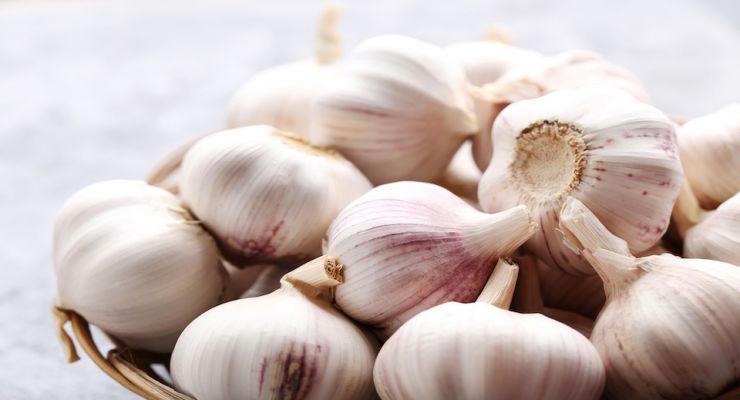Everyone, at some point, has experienced craving a late night snack. Whether you merely had a small dinner or wanted something to tide you over until breakfast, we’ve all indulged our stomachs when it comes to pre-sleep snacks. Keep in mind that a light nighttime snack isn’t always a bad thing. However, there are a few foods that you will want to stay far away from if you hope to have a restful night of sleep.
Raw garlic
There has long been a myth perpetrating the idea that eating garlic before bed can help improve sleep quality. In reality, the opposite is true. It’s certainly not a myth that garlic possesses numerous health benefits and can alleviate many conditions including immune disorders, arthritis, and even cancer. It is an excellent food to add to your diet as much as possible. However, eating this smelly vegetable before you sleep is actually a terrible idea!
Because garlic is considered a gastrointestinal stimulant, it could actually keep your stomach active through the night and prevent you from getting comfortable. It’s potent flavor and spice can increase saliva production and unsettle your bowels, even causing heartburn. This also applies to spicy foods like peppers and hot sauce as they can contribute to nighttime acid reflux and restlessness. If you wish to consume more garlic in your meals, it is best to eat it early in the day.
Green tea
Though a cup of tea before bed may seem soothing, green tea is quite high in caffeine. Drinking this within a few hours of trying to fall asleep may cause your mind to be overactive and prevent you from enjoying a peaceful night. Not to mention that any liquid before bed has the potential to cause middle-of-the-night bathroom trips.
If you do want to drink green tea in the evening, drink it at least 3 hours before you plan to go to bed, or choose a decaffeinated variety.
Pasta and bread
Foods containing pasta and bread are full of empty carbohydrates. While it may feel like they’re filling you up, in reality, these foods are just making you more hungry. Plus, if you eat carbohydrate-heavy snacks before bed, your body doesn’t have a chance to convert these carbohydrates into energy and they immediately turn to fat.
Chocolate
Chocolate is one of those sneaky sources of caffeine, and though you may enjoy a few bites of dark chocolate in the evening, it could be the reason you have trouble falling asleep or wake up still feeling tired. Dark chocolate also contains theobromine which has been shown to increase heart rate. Not exactly a recipe for a satisfying night of sleep.
Celery
While it may be a great way to help hydrate you or rid your body of toxins through urine, celery may not be the smartest choice for an evening snack. Celery is 95% water and is a natural diuretic. Simply speaking, if you eat celery, you will have to go to the bathroom more, as it helps push water throughout the system at a quick rate. It could cause your body to be jolted out of REM, demanding a trip to the toilet.
Ice cream
Though ice cream may be your go-to option for a post-dinner dessert, eating it in the evenings (or at all, really) is probably not a good idea. Ice cream is packed full of fat. Fat which your body doesn’t have a chance to burn through with activity. Therefore, it is converted straight into fat stores and will most likely contribute to those love-handles you’ve been battling. Plus, sugar-laden foods have been linked to disrupted sleep and nightmares.
Sugary cereals
Similarly to ice cream, the sugar content in most cereals has a negative effect on your body at any time of the day, but especially right before bed. These sugary cereals lead to a massive spike in your blood sugar levels and then a dramatic crash which can interfere with a healthy sleep cycle.
Too much food in general
It is never a good idea to eat a heavy meal right before bed. Though you may feel sleepy right after dinner or a particularly large snack, going to sleep directly after a meal can contribute to weight gain and disrupted sleep. Digesting food takes a while and if you go to sleep before your body has time to process the food you just ate, it will have to work overtime and could keep you awake or cause restless sleep.
-Susan Patterson

